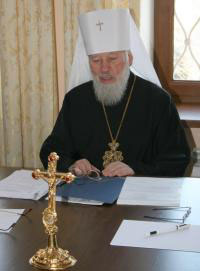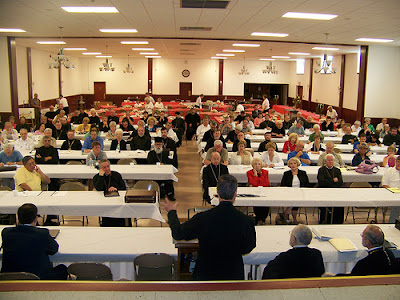The Antiochian Archdiocese has thrown their hat into the already packed online bookstore arena. I may order one or two items to see how the service and pricing are. To see my review of online retailers, see this posting.
(Antiochian) - We are pleased to announce that on June 19th the Antiochian Village Bookstore and Gift Shop went “live” with its new online store. Our ability to offer this has been made possible in large part by the efforts of Mother Alexandra of the Convent of St. Thekla, and fulfills a vision for our store which has been discussed for the past few years. Through her efforts, and with the help of Adam Henderson (a parishioner at St. Mary Church in Johnstown, PA), our store has entered the 21st century. Applying their computer expertise and hard work, all the product in the “brick and mortar” store at the Heritage and Learning Center is being managed and maintained by a retail management software program thus making the launch of the online component possible. Many hours went in to writing descriptions, photographing and weighing product for display on the store website.
Initially, the online store is offering a wide array of quality Orthodox Christian books as well as many other titles related to spiritual and personal progress. As you will see when perusing the categories listed on the website, our selections include a broad scope of books for students of the faith at all levels, for families, for children, and more. We also carry select titles of works published by the Antiochian Orthodox Archdiocese Department of Publications.
For students of the Antiochian House of Studies (AHoS), we are your one-stop shop! Whether you are enrolled in the St. Stephen’s Course of Study, the Doctor of Ministry degree program, or other AHoS degree programs and specialties, you will find every book both required and recommended for your course work - if it is available, we have it. Books are organized on the website by units for those enrolled in the St. Stephen's Course of Study with a separate link for the Doctor of Ministry program.
In the near future, we will begin adding a variety of gift items including icons, prayer ropes, jewelry, and many other quality goods pertaining to our Orthodox Christian faith and practice. Stay tuned! Visit! Enjoy!
Please note that there are also links to the bookstore on the home page of the Antiochian.org under “Featured Links” and under “Publications of the Archdiocese”/“Books”. Additionally, there is a link to the online store on the home page of the Antiochian Village Conference and Retreat Center website.
















































